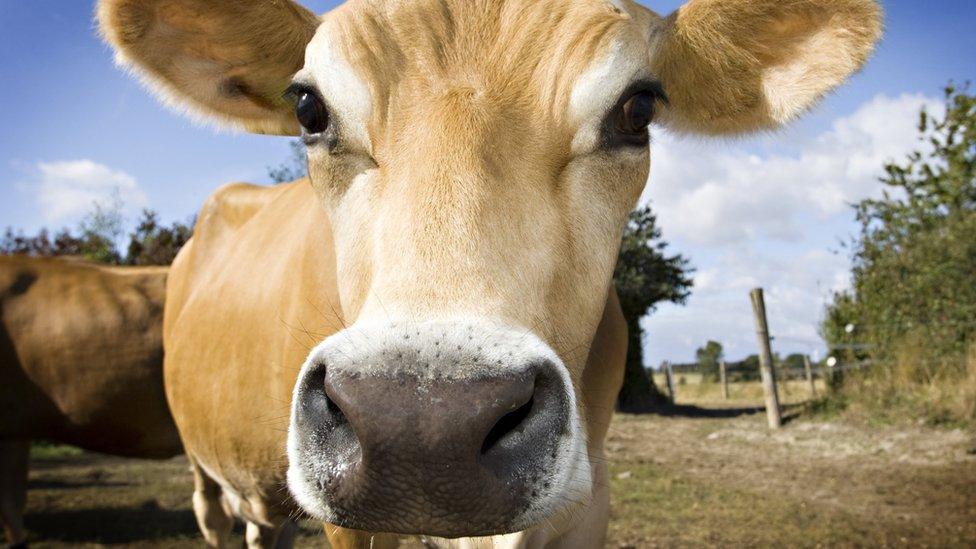Badger cull options to be offered by NI officials
- Published

Badgers and cattle both suffer from the same strain of TB
Agriculture officials are to present two options to a future minister on a possible badger cull to combat a costly cattle disease.
That is despite a recommendation by their own advisory group clearly favouring one option over the other.
Bovine TB costs taxpayers about 拢40m a year in testing and compensation for farmers whose cattle are destroyed.
Badgers, a protected species, and cattle suffer from similar strains of the disease.
However, the extent and direction of cross-infection is debated.
The advisory group recommended the authorities in Northern Ireland adopt a similar approach to the Republic of Ireland.
Trapping and testing
There a cull was used to significantly reduce the badger population in TB hotspots, before vaccination was introduced for remaining disease-free animals.
This idea is controversial with conservationists, who believe it could lead to healthy animals being destroyed.
It is understood the Department of Agriculture Environment and Rural Affairs (Daera) will estimate the cost of this approach.
But it will also cost an option which is likely to find greater favour with conservation groups.
That would entail trapping and testing badgers, vaccinating the healthy ones and only destroying those with the disease.
A wider vaccination programme would follow.
A second option would entail the trapping and testing of badgers
A five-year research project was run in County Down using this method - 1,500 badgers were trapped, although the number destroyed has not yet been revealed.
It is also understood the advisory group's recommendation on cuts to compensation levels for farmers has been rejected by officials.
Financial burden
The TB Eradication Partnership Group (TBEP) suggested reduced compensation be paid only on the first five animals testing positive for the disease, with the farmer receiving full market value for any remaining infected cattle.
It is understood the department felt this proposal did not go far enough to share the financial burden of disease eradication between industry and government.
"TBEP's advice paper to Daera forms part of the information and evidence that will be considered by the department when finalising advice to a future minister on possible wildlife intervention and compensation levels," a Daera spokesperson said.
Bovine TB is a significant problem for the agricultural industry in Northern Ireland running at between 8-10% of herds.
The disease leads to movement and sales restrictions, and the testing process can be a time-consuming and stressful experience for farm families.
Farmers say there is no point in spending millions of pounds addressing the disease in cattle unless it is also addressed in wildlife.
- Published11 September 2019
- Published9 September 2019
- Published20 March 2019